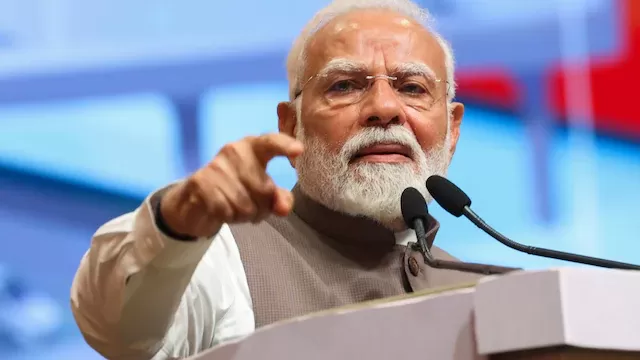The recent revelation by Chief of Defence Staff General Anil Chouhan regarding the loss of Indian fighter jets during Operation Sindoor has sparked political controversy, with Congress President Mallikarjun Kharge demanding greater governmental transparency. Kharge accused the Narendra Modi administration of misleading the public and called for a special parliamentary session to address the issue. However, the CDS’s candid admission reflects a strategic commitment to openness and an acknowledgment of tactical recalibrations that helped India regain air superiority. This episode underscores the delicate balance between national security, political accountability, and public confidence in times of conflict.
The Political Repercussions of Military Transparency
The disclosure by General Anil Chouhan that Indian fighter jets were downed in the initial phase of Operation Sindoor immediately reverberated across the political spectrum. Congress leader Mallikarjun Kharge seized on the admission to question the government’s narrative and accused the ruling party of obfuscation, urging Parliament to convene specially to address what he described as vital concerns for the nation’s 140 crore citizens.
Kharge’s reaction highlights a broader political contestation surrounding defense disclosures, wherein opposition parties often scrutinize government communication during sensitive military engagements. His call for accountability resonates with the democratic principle that citizens deserve candid updates about the conduct and outcomes of conflict situations, particularly when national security assets are at risk.
The Chief of Defence Staff’s Calculated Transparency
Contrary to accusations of impropriety or error, General Chouhan’s disclosure appears to be a deliberate act of transparency, intended to acknowledge operational challenges without compromising strategic interests. By admitting losses, the CDS affirmed India’s commitment to openness while differentiating itself from Pakistan’s narrative, which reportedly sought to mask its own setbacks by celebrating despite losses.
More importantly, the CDS underscored the Indian military’s adaptive response. Recognizing the tactical errors that led to the initial aircraft losses, the armed forces undertook swift corrective measures. Within two days, air operations resumed with enhanced long-range targeting capabilities, restoring the offensive momentum. This narrative of learning and resilience is crucial in maintaining public confidence during protracted conflicts.
Strategic Lessons and Operational Adaptability
The initial setbacks experienced by the Indian Air Force during Operation Sindoor serve as a potent reminder of the inherent complexities of modern warfare. Losses, while regrettable, are not uncommon in dynamic combat environments, where adversaries constantly adapt and counter-manoeuvre.
The key takeaway, as highlighted by the CDS, is the Indian military’s capacity to diagnose and rectify tactical shortcomings rapidly. Such adaptability not only mitigates immediate operational risks but also reinforces deterrence by signaling a robust and evolving defense posture.
From a broader strategic perspective, this episode also illustrates the necessity of measured transparency in military affairs—balancing the public’s right to information with operational security imperatives.
Political Accountability and National Security: A Delicate Equilibrium
The controversy triggered by the CDS’s admission reflects an ongoing tension in democratic governance—ensuring government accountability while preserving the confidentiality essential for national security.
While opposition parties like Congress emphasize the need for parliamentary oversight and public clarity, defense officials stress prudence in managing sensitive information. The Modi government’s challenge lies in navigating these dual imperatives without politicizing military setbacks or compromising operational effectiveness.
Moreover, Kharge’s demand for a special parliamentary session underscores the critical role legislative bodies play in scrutinizing defense policies and fostering informed public debate—foundations of a resilient democracy.
Conclusion: Towards Informed Dialogue on Defense and Governance
General Anil Chouhan’s forthrightness about aircraft losses during Operation Sindoor invites a constructive conversation on the evolving nature of warfare, transparency, and governance. While political leaders have a responsibility to hold the executive accountable, it is equally vital to appreciate the complexities of military operations and the strategic value of adaptive responses.
As India confronts ongoing security challenges, fostering an environment where transparency coexists with tactical prudence will be key to sustaining public trust and national resilience.

Comments